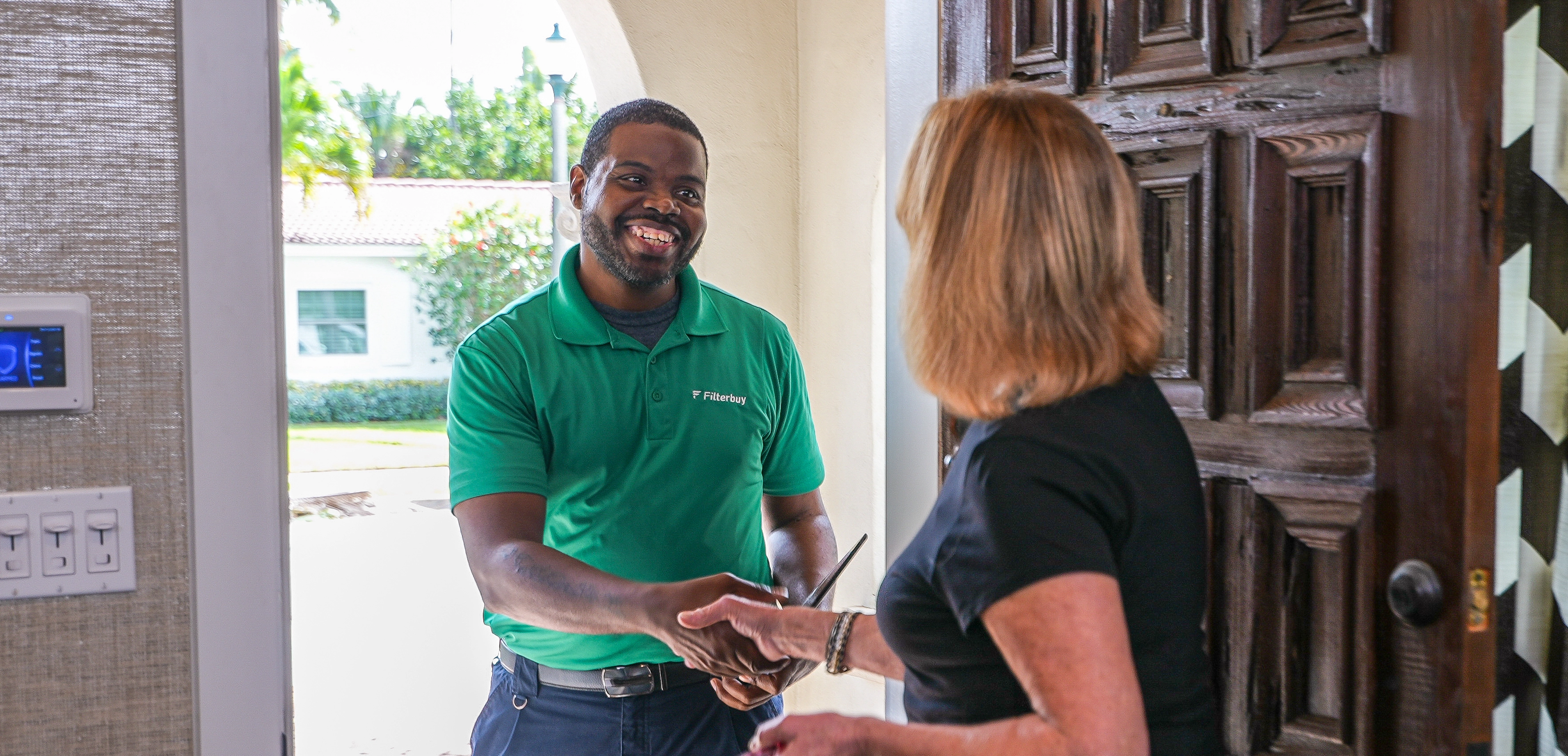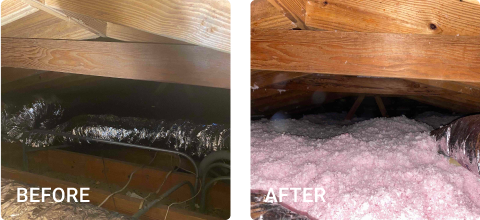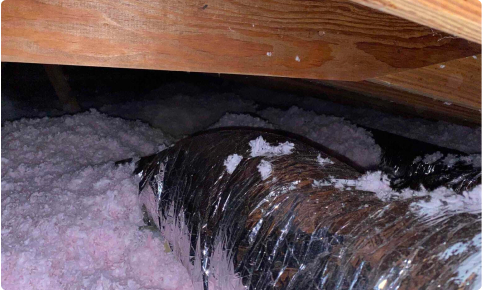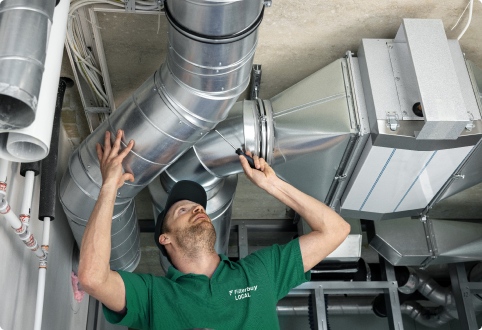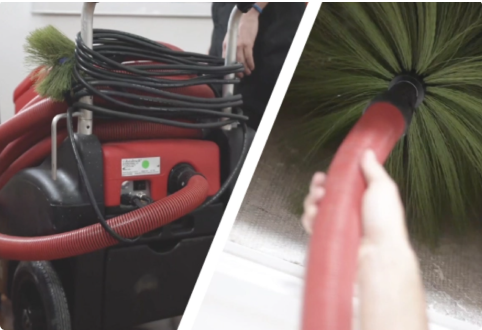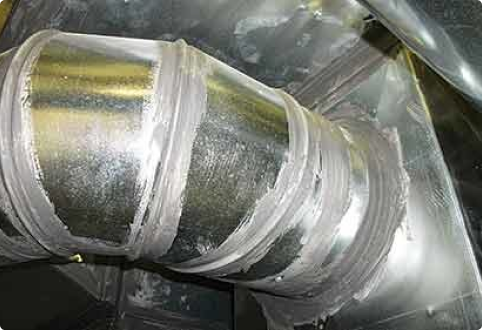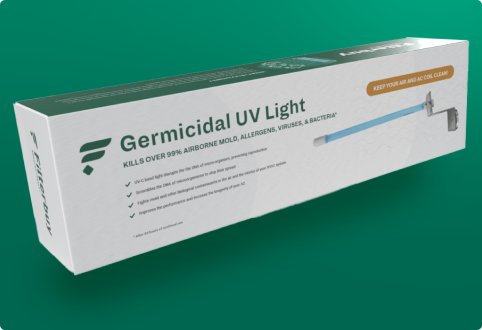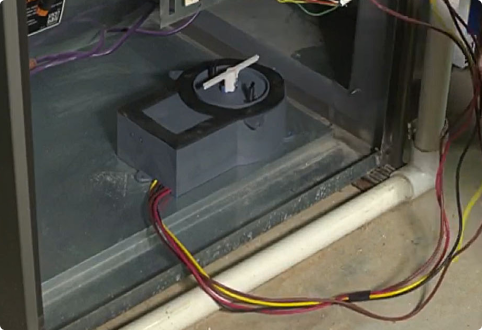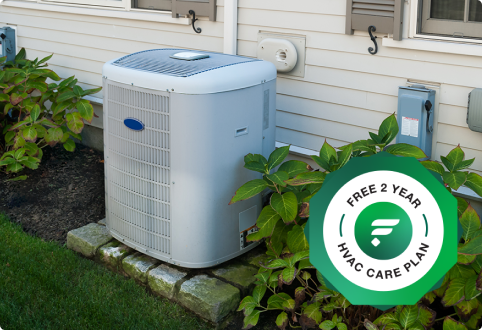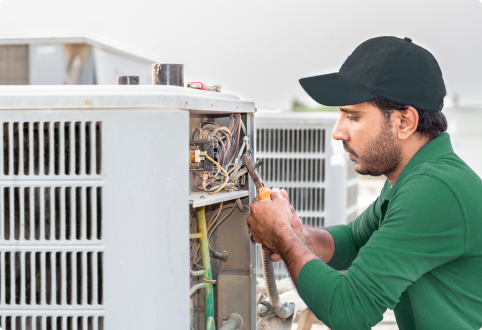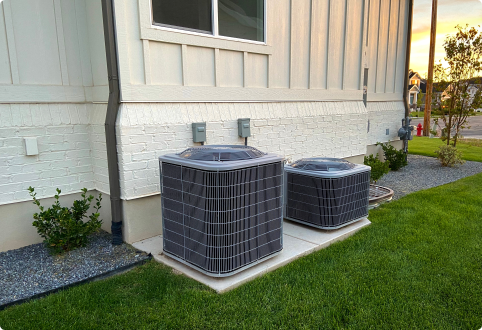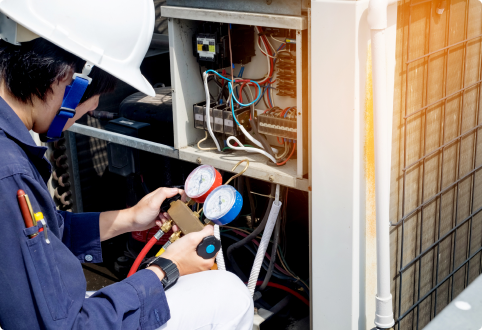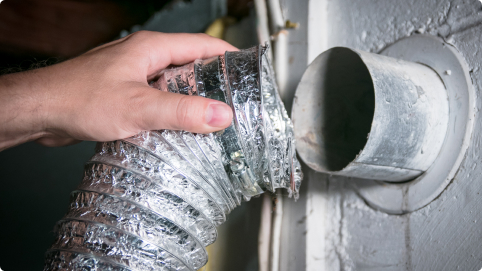Welcome to Filterbuy HVAC Solutions, the best attic insulation installation service company proudly serving in and near the greater Brickell, FL area. Please let us know how we can help solve your Brickell attic insulation installation needs with professional, affordable, and fast residential and commercial HVAC services by getting a free online quote or by giving our friendly HVAC specialists a call. We look forward to hearing from you!
Insulation Installation Services In Brickell FL
Insulation is a pivotal component in the construction of residential and commercial properties, serving as a barrier to heat loss and gain. In areas such as Brickell, Florida, where temperature fluctuations are common, proper insulation becomes crucial for maintaining energy efficiency and indoor comfort. The selection of appropriate insulation materials coupled with proficient installation techniques significantly contributes to the overall performance and longevity of the insulation system.
A lack of adequate insulation can lead to several issues including high energy bills, uneven temperature distribution within the premises, and condensation on walls and ceilings resulting in mold growth among others. Given these potential challenges, homeowners must understand the various types of insulation materials available in the market along with their respective characteristics. Furthermore, recognizing signs of poor or inefficient insulation is equally important for timely intervention by professional services. This article aims to provide insights into such aspects whilst also highlighting considerations related to cost and post-installation maintenance associated with home insulation projects.
Key Takeaways
Hiring professionals for insulation installation in Brickell FL ensures optimal thermal performance and compliance with waste management regulations.
Professional insulation providers have expert knowledge of insulation materials and application techniques, ensuring proper fitting and coverage.
Regular maintenance checks and procedures are crucial for the longevity and effectiveness of insulation, contributing to energy conservation.
Seeking assistance from local installation services is advisable for replacement procedures and to ensure effective management strategies for optimal thermal comfort and building health.
The Importance of Proper Home Insulation
Understanding the significance of proper home insulation stands paramount, as it directly correlates to the achievement of optimal energy efficiency, a reduction in utility costs, and an improvement in overall indoor comfort levels. When installed correctly, insulation acts as a barrier between different areas of temperature variation within a structure, reducing heat transfer and promoting energy conservation. This helps maintain stable indoor temperatures regardless of external weather conditions, contributing to increased comfort and reduced reliance on heating and cooling systems.
The role that insulation plays is not confined only to energy efficiency but also extends to the enhancement of Insulation Longevity. The durability and lifespan of an insulation system largely depend on its installation quality and maintenance over time. High-quality materials coupled with professional installation can ensure long-lasting performance without frequent repairs or replacements. Furthermore, efficient insulation contributes to preventing moisture problems such as mold growth or dampness within structures, which can reduce building degradation over time.
Moreover, adequate home insulation offers significant Health Benefits by enhancing indoor air quality and mitigating health risks associated with extreme temperature fluctuations or poor air circulation. For instance, effective insulation prevents drafts that may carry dust particles or allergens into living spaces from outside. It also reduces condensation inside walls or ceilings that could potentially lead to mold growth – exposure to which can cause respiratory issues among occupants. Therefore, investing in proficient home insulation services does not just contribute towards financial savings but also safeguards occupant health while ensuring structural longevity.
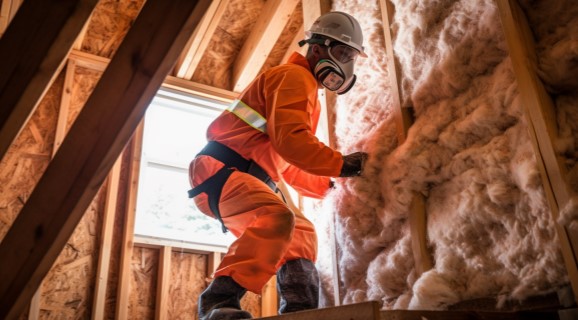
Common Signs of Poor Insulation
Inferior thermal barriers may be indicated by a range of symptoms, from inconsistent indoor temperatures to escalating energy bills. A marked inconsistency in indoor temperatures throughout different rooms or floors is one prevalent sign of poor insulation. The temperature differential is often the result of heat escaping through inadequately insulated walls, ceilings, and floors or cold air seeping into the home during winter months. Furthermore, increasing energy costs are another indicator that the property's insulation might be inadequate or deteriorating; effective insulation typically helps reduce electricity consumption by maintaining a comfortable interior climate.
Insulation deterioration causes can vary widely and include biological factors such as pest infestations or mold growth due to moisture infiltration. Another common cause is physical damage due to age, improper installation techniques, or structural issues within the building itself. For instance, if insulation materials were not installed correctly during construction or renovation phases it could lead to gaps and compression points which significantly degrade its thermal performance over time. In addition, natural aging can also contribute to a decrease in insulation's effectiveness as certain materials tend to settle and compress over time leading to reduced coverage.
Health risks associated with poor insulation should also be considered when evaluating the condition of an existing insulating system. Poorly insulated homes often have high levels of humidity leading to increased chances of mold growth which can exacerbate respiratory conditions such as asthma and allergies. Additionally, insufficient attic or wall insulation can lead to drafts introducing dust particles and other allergens into the living space further impacting indoor air quality negatively. Thus ensuring proper installation and maintenance of home thermal barriers not only contributes towards energy efficiency but also aids in safeguarding occupant health while promoting overall comfort within residential spaces.
Types of Insulation Materials
Various materials, each with unique properties and applications, are utilized to enhance the thermal performance of residential and commercial buildings. The choice of insulation material is largely dependent on its intended use, the local climate, as well as cost considerations. These materials vary in density, R-value (the measure of thermal resistance), fire-resistance rating, soundproofing capacity, and insulation longevity.
Fiberglass is a prevalent insulating material due to its affordability and ease of installation. It provides reasonable heat insulation but has lower soundproofing capabilities compared to other materials. Another common material is mineral wool which has superior fire-resistance properties and good thermal performance. However, it can be more expensive than fiberglass. Insulation longevity for these types often exceeds several decades if properly installed and maintained.
Polyurethane foam is another option that offers high R-values per inch making it suitable for spaces where a greater degree of insulation is required within limited space. Moreover, eco-friendly materials like cellulose are gaining popularity owing to their low environmental impact. Made from recycled paper products treated with borate for fire and pest resistance, cellulose not only provides excellent thermal resistance but also contributes towards waste reduction efforts in construction practices. Though they may fall short in terms of durability compared to synthetic materials like polyurethane foam or fiberglass, their contribution towards sustainability makes them an increasingly attractive choice for modern buildings aiming at reducing their carbon footprint.
The Process of Insulating a Home Filtration
Achieving optimal thermal performance in a residential or commercial building necessitates a comprehensive procedure that involves the selection of appropriate insulating materials, assessing the area's specific insulation needs, and executing meticulous installation processes. The process begins with a detailed analysis of the space to determine its current energy efficiency level and identify areas where heat transfer can be reduced. This energy audit informs decisions about which types of insulation will meet the unique requirements of each part of the building - whether it is fiberglass batts for walls or spray foam for attic spaces.
The actual installation requires careful attention to detail and compliance with insulation safety precautions to ensure an effective barrier against heat transfer while minimizing potential health hazards. It involves properly fitting the chosen insulating material into identified spaces, ensuring no gaps or compression could degrade its performance. During this phase, all necessary personal protective equipment (PPE) must be worn, including gloves, dust mask or respirator, and eye protection. Furthermore, understanding how to handle potential fire hazards associated with certain insulation materials is imperative for installer safety.
Once installed correctly, regular inspection and proper maintenance are crucial in preserving its efficacy over time. Eventually however when replacement becomes necessary due to normal wear and tear or following damage from events such as water infiltration or pest infestation, proper insulation disposal methods must be employed considering environmental factors. Depending on the type used; some can be recycled whereas others may require special handling as hazardous waste due to their composition. This highlights one more critical aspect wherein professional service providers in Brickell FL demonstrate their worth by complying with local regulations regarding waste management while ensuring continued optimal thermal performance of the buildings they serve.

Professional Assistance: Why You Need It
Navigating the complexities of maintaining optimal thermal performance in a building can be a challenging task that underscores the need for professional assistance. The intricacies involved in insulation installation, particularly in Brickell FL, require an understanding of construction materials and techniques, coupled with expertise in insulation safety measures. Hiring professionals who specialize in this field brings numerous benefits including precise installations according to industry standards, reduced risk of property damage, and adherence to local building regulations.
Professional assistance offers several advantages:
1. Expert Knowledge: Professionals have extensive knowledge about different types of insulation materials and their appropriate application depending on the climate, building structure, and specific needs of each project. They are also well-versed with the latest industry trends and innovative solutions.
2. Safety Measures: Insulation installation involves potential hazards like skin irritation from fiberglass or inhalation of harmful particles. Professionals are trained to handle these materials safely and use protective gear to prevent health risks.
3. Quality Assurance: Hiring professional services ensures high-quality workmanship as they are accountable for their work. This results in enhanced durability and effectiveness of the installed insulation.
The relevance of involving professional help cannot be overstated when it comes to achieving desired thermal efficiency through proper insulation installation. It is not just about placing insulating material within walls or above ceilings; it involves careful planning, meticulous execution, and stringent quality checks. Expert installers possess comprehensive knowledge about construction techniques which enables them to anticipate potential issues before they escalate into costly repairs. Moreover, they adhere strictly to insulation safety protocols reducing any possible harm during the process. With hiring benefits such as access to specialized tools, time-saving procedures, and guaranteed workmanship quality; opting for professional installation services becomes an investment toward long-term energy efficiency rather than just an immediate expense.
Selecting a Reliable Insulation Provider
Choosing a dependable provider for enhancing your building's thermal performance requires careful consideration and thorough research. One of the crucial factors to consider is insulation durability, as it directly impacts the longevity and effectiveness of the installed insulating material. A reliable insulation installation service provider in Brickell, FL should be able to offer high-quality materials that can withstand harsh weather conditions without compromising on their thermal properties. Additionally, they must have an in-depth understanding of various insulation types such as spray foam, blown-in cellulose, or fiberglass batts, and their application methods.
The second integral factor while selecting an insulation provider is checking for provider credentials. The company chosen should not only be licensed to operate within Brickell, FL but also have certifications from relevant bodies that authenticate their expertise in installing insulation. These may include the Insulation Contractors Association of America (ICAA), National Insulation Association (NIA), or Building Performance Institute (BPI). Such accreditations ensure that the provider adheres to industry standards in terms of safety measures, use of approved materials, and adherence to local building codes.
Assessing past projects undertaken by the potential providers offers valuable insight into their workmanship quality and customer satisfaction level. Reviews and testimonials from previous clients provide a candid evaluation of their services while case studies can demonstrate how effectively they handle different types of buildings or specific challenges related to insulation installation. Furthermore, professional providers often offer warranties on both materials used and labor provided - a testament to the confidence in their work quality and commitment towards customer satisfaction. Therefore, when choosing an insulation installation service in Brickell FL, it is essential to consider these critical aspects for making an informed decision.
Cost Considerations for Insulation Projects
Understanding the financial implications of thermal performance enhancement endeavors necessitates a comprehensive breakdown and scrutiny of all associated costs. In Brickell, FL, insulation projects require careful budgeting due to fluctuating prices of materials and labor charges. These expenses often vary depending on the type of insulation selected, the size of the area to be insulated, and the complexity involved in the installation. One must also consider indirect costs such as those related to disruptions in regular activities during installation, potential damage to existing structures and facilities during installation processes, or even long-term maintenance costs.
To buffer against these high costs, some homeowners may opt for a do-it-yourself (DIY) approach. However, DIY drawbacks should not be underestimated when contemplating insulation projects. While there might be an initial cost saving due to eliminated labor charges in DIY projects, several other factors can increase overall expenses in the long run. For instance, without professional guidance and expertise in handling insulation materials properly or understanding building codes in Brickell FL., mistakes are likely which might lead to inefficiencies or even safety hazards requiring costly remedies down the line.
When planning for an insulation project within Brickell FL., it is beneficial for residents to explore governmental assistance programs offering insulation subsidies as a means of cost alleviation. Such incentives encourage energy efficiency by offsetting part of the expense incurred when installing quality insulative systems that enhance thermal performance within homes or commercial buildings. However, securing such subsidies often requires adherence to specific guidelines regarding material type and installation procedures – thus emphasizing once more the importance of engaging reliable service providers well-versed with local regulations for optimal outcomes both financially and functionally from any given insulation project.
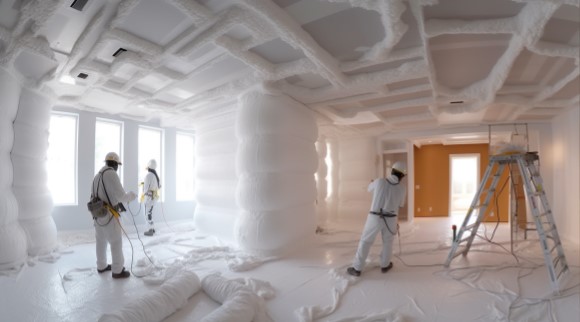
Enhancing Energy Efficiency through Insulation
Achieving superior energy efficiency in a building necessitates the proper utilization of thermal performance enhancement strategies. One such strategy involves the use of insulation installation services, particularly in Brickell, FL. Insulation works by limiting heat transfer between the interior and exterior environments of a structure, thereby optimizing energy consumption. This is especially pivotal in regions with variable weather conditions where maintaining consistent indoor temperatures can be challenging.
1. Insulation Regulations: These are sets of rules designed to ensure that buildings meet specific energy-efficiency standards. In Florida, for instance, the Building Code includes regulations on insulation that aim to reduce energy consumption in both commercial and residential structures. The rules stipulate minimum R-values (a measure of thermal resistance) for different types of insulations depending on their intended use within a building.
2. Green Insulation: This refers to environmentally friendly insulation materials made from recycled or sustainable resources. Examples include cellulose insulation (made from recycled paper), sheep's wool, and rigid polystyrene boards made from plant-based materials instead of petroleum products. Green insulation not only conserves resources but also reduces potential health risks associated with traditional insulating materials.
3. Construction Techniques: Various construction techniques can enhance a building's thermal performance through effective insulation application. For example, cavity wall construction allows for increased thicknesses of insulating materials without compromising interior space utilization.
Improving overall environmental sustainability requires concerted efforts toward enhancing energy efficiency within built environments. A key aspect includes understanding and adhering to local insulation regulations while considering green alternatives for constructing more eco-friendly buildings. Engaging professional installation services ensures correct adherence to guidelines and optimal application techniques leading to efficient thermal management within the structure which ultimately translates into significant cost savings over time due to reduced utility bills as well as contribution towards wider global climate change mitigation efforts.
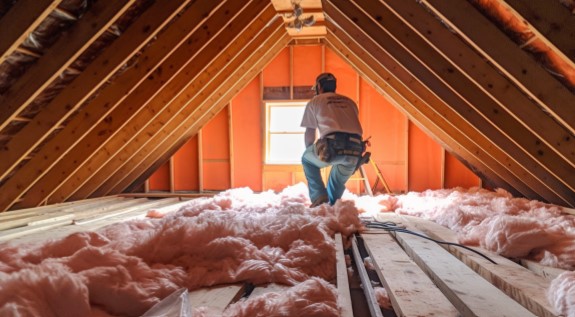
The Role of Insulation in Maintaining Indoor Comfort
Maintaining a consistent and comfortable indoor climate is largely dependent on the effective use of thermal performance enhancement materials. The role of insulation in this regard cannot be overstated, as it effectively reduces heat transfer between the interior and exterior environments, contributing to a stable thermal comfort level within the house or building. Insulation aesthetics also play an important part in maintaining indoor comfort. Beyond its functional role, modern insulation has been designed to integrate seamlessly with surrounding structures without compromising visual appeal.
The key to achieving optimal insulation benefits lies not only in choosing high-quality materials but also in proper installation. Insulation risks such as inadequate coverage, incorrect fitting, or gaps can lead to significant heat loss, resulting in fluctuating indoor temperatures and increased energy usage for heating or cooling. Furthermore, some types of insulation may pose certain health risks if not installed correctly; they might release harmful particles into the air which could cause respiratory issues among inhabitants.
Despite these potential challenges associated with insulation installation services, there are solutions available that guarantee both superior thermal performance and safety standards. Professional service providers specialize in different forms of insulation application techniques suited for various construction designs while adhering strictly to local building codes in Brickell FL. They ensure that the chosen material fits perfectly into walls, floors, and ceilings thus minimizing any potential risks while optimizing energy efficiency levels within the property. This assists homeowners or businesses in maintaining a comfortable indoor environment throughout all seasons regardless of external weather conditions.
Post-Installation Maintenance Tips
To ensure the longevity and effectiveness of thermal performance enhancement materials, it is crucial to carry out regular post-application maintenance checks and procedures. Proper care can extend insulation longevity, maintain its efficiency, and ultimately contribute to energy conservation. This process involves inspecting for signs of damage or wear that may compromise the insulating properties, addressing issues promptly, and coordinating with professional services when necessary.
Several key factors should be considered during these routine inspections:
1. Seasonal upkeep: Changes in weather conditions can impact the effectiveness of insulation. For instance, high humidity levels during summer months in Brickell FL could lead to moisture accumulation within the material that may degrade its thermal resistance over time.
2. To prevent this issue, it is recommended to check for potential sources of moisture leakage such as roof leaks or plumbing defects before the onset of humid seasons.
3. Regularly examining ventilation systems can also help control indoor humidity levels and limit potential damage.
4. Age of Insulation: Over time, even high-quality insulation materials may begin to deteriorate due to natural aging processes. Therefore,
5. Frequent monitoring is essential, especially for older installations where there's a higher risk of degradation.
6. In case significant deterioration is observed, seeking assistance from local installation services in Brickell FL would be advisable for replacement procedures.
Effective management strategies are vital after conducting insulation installation services in Brickell FL or elsewhere. The right approach not only ensures optimal thermal comfort but also promotes overall building health by mitigating risks associated with dampness or mold growth which could arise from poorly maintained insulation systems. It's worth noting that while some maintenance tasks like visual inspection can be performed independently by property owners; certain procedures involving repair or replacement are best left to professionals given their technical complexity and safety considerations.

Frequently Asked Questions
How Much Does It Cost To Insulate An Attic In Florida?
The cost of insulating an attic in Florida can vary depending on several factors, including the size of the attic and the type of insulation used. On average, the cost can range from $1,500 to $3,500.
What Is The Best Insulation For The Attic In Miami?
The best insulation for an attic in Miami is typically radiant barrier insulation or spray foam insulation. These types of insulation are highly effective at reflecting heat, which is vital in Miami's hot climate.
Is Attic Insulation Worth It In Florida?
Attic insulation is worth it in Florida as it can significantly reduce your energy costs by keeping your home cooler in the summer and warmer in the winter. It can also increase the overall comfort and value of your home.
What Is The Code For Attic Insulation In Florida?
According to the Florida Building Code, the minimum recommended attic insulation in Florida is R-38 for ceilings, which is equivalent to about 12-15 inches of fiberglass or cellulose insulation.
Should I Remove Old Attic Insulation Before Adding New?
It's not always necessary to remove old attic insulation before adding new unless it's damaged or contains mold. If the existing insulation is in good condition, new insulation can be added on top.
How Much Does It Cost To Insulate A 2500 Sq Ft Attic?
The cost of insulating a 2500 sq ft attic can range from $3,000 to $8,000 depending on the type of insulation used and the labor costs.
How Thick Should Attic Insulation Be In Florida?
In Florida, the attic insulation should ideally be about 12-15 inches thick to reach the recommended R-38 value.
What Is The Most Cost-Effective Way To Insulate An Attic?
The most cost-effective way to insulate an attic is often through blown-in insulation. It's less expensive than other types and can be installed quickly.
Is Blown-In Or Fiberglass Insulation Better For the Attic?
Both blown-in and fiberglass insulation are effective for attics, but they have different benefits. Blown-in insulation fills in spaces more completely, while fiberglass insulation is more affordable and easier to install.
What Are The Disadvantages Of Attic Insulation?
Some disadvantages of attic insulation include the potential for moisture problems if not properly installed, the possibility of it containing harmful substances, and the need for professional installation for certain types.
What Is The Lifespan Of Attic Insulation?
The lifespan of attic insulation can vary depending on the type, but it typically lasts between 20 and 30 years.
Should I Spray Foam My Attic In Florida?
Spray foaming your attic in Florida can be a good idea as it provides a high level of insulation and can help prevent moisture problems. However, it's more expensive than other types of insulation so you'll need to consider your budget.
Here is the nearest branch location serving the Brickell area. . .
Filterbuy HVAC Solutions - Miami FL
1300 S Miami Ave Unit 4806, Miami, FL 33130, United States
(305) 306-5027
https://maps.app.goo.gl/74FCk77QfRuNSGRd6

.webp)
.webp)
.webp)
.webp)






